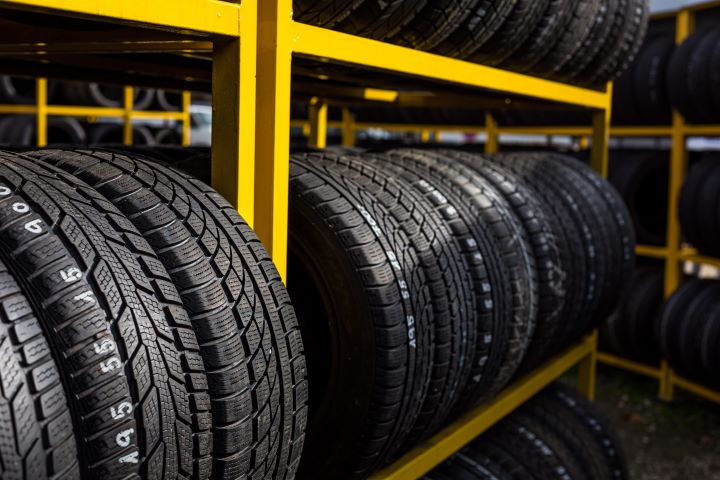Comprehensive Guide To Repossessed Cargo Trailers
Repossessed cargo trailers represent a significant segment of the used trailer market, offering potential buyers affordable alternatives to brand-new units. These trailers become available when original buyers default on their financing agreements, leading financial institutions and lenders to reclaim the assets. Understanding the repossession process, available models, pricing structures, and the advantages and disadvantages of purchasing these trailers can help buyers make informed decisions when considering this cost-effective option for their hauling needs.

What are Repossessed Cargo Trailers
Repossessed cargo trailers are vehicles that have been reclaimed by lenders, banks, or financing companies due to non-payment of loans or lease agreements. When buyers fail to meet their financial obligations, creditors exercise their legal right to recover the collateral. These trailers can range from small utility models to large commercial units, depending on what was originally financed. The repossession process typically occurs after several missed payments and failed attempts to resolve the debt. Once reclaimed, these trailers enter the secondary market where they are sold to recover outstanding loan balances.
What happens to Repossessed Cargo Trailers
After repossession, cargo trailers follow a structured disposal process managed by financial institutions or specialized asset recovery companies. Initially, trailers are inspected, documented, and stored at secure facilities. Lenders often attempt to sell these assets quickly to minimize storage costs and maximize recovery. The sales process typically includes auctions, direct sales to dealers, or online marketplace listings. Some trailers may undergo basic maintenance or repairs to improve marketability, while others are sold in as-is condition. The timeline from repossession to sale varies but generally ranges from a few weeks to several months, depending on market conditions and the trailer’s condition.
Repossessed Cargo Trailers Models
The variety of repossessed cargo trailer models available reflects the diverse needs of the original buyers. Common models include enclosed cargo trailers ranging from 6x10 feet for personal use to 8.5x24 feet for commercial applications. Popular brands that frequently appear in repossession sales include Wells Cargo, Continental Cargo, Haulmark, and Pace American. Single-axle trailers typically handle lighter loads and offer better fuel economy, while tandem-axle models provide increased capacity and stability. Specialty variants such as motorcycle trailers, car haulers, and concession trailers also enter the repossessed market, offering buyers access to specialized equipment at reduced prices.
Repossessed Cargo Trailer Price Ranges
Pricing for repossessed cargo trailers varies significantly based on size, age, condition, and market demand. Smaller utility trailers (6x10 to 6x12 feet) typically range from $2,500 to $4,500, representing savings of 20-40% compared to new models. Mid-size trailers (7x14 to 8x16 feet) generally sell between $4,000 and $7,500, while larger commercial units (8x20 feet and above) can range from $6,000 to $12,000. Factors affecting pricing include trailer age, mileage, maintenance history, and any necessary repairs. Geographic location also influences prices, with higher demand areas commanding premium rates.
| Trailer Size | Typical Price Range | Estimated Savings vs New | Common Features |
|---|---|---|---|
| 6x10-6x12 ft | $2,500-$4,500 | 20-40% | Single axle, basic interior |
| 7x14-8x16 ft | $4,000-$7,500 | 25-45% | Tandem axle, upgraded options |
| 8x20+ ft | $6,000-$12,000 | 30-50% | Commercial grade, multiple doors |
Prices, rates, or cost estimates mentioned in this article are based on the latest available information but may change over time. Independent research is advised before making financial decisions.
Repossessed Cargo Trailers Pros and Cons of Getting one
Purchasing repossessed cargo trailers offers several advantages, including significant cost savings compared to new units. Buyers can often acquire quality trailers at substantially reduced prices, making commercial-grade equipment accessible to small businesses and individuals. The selection frequently includes well-maintained units from reputable manufacturers that would otherwise be unaffordable. Additionally, the quick turnover of repossessed inventory means buyers can often find recent model years with modern features.
However, potential drawbacks exist that buyers should carefully consider. Repossessed trailers may lack complete maintenance records, making it difficult to assess long-term reliability. Limited or no warranty coverage increases the buyer’s risk of unexpected repair costs. The as-is sales condition means buyers must thoroughly inspect trailers before purchase, as returns are typically not permitted. Competition from dealers and contractors can drive auction prices higher, potentially eliminating some cost advantages. Finally, financing options may be more limited compared to new trailer purchases, requiring buyers to secure independent funding.
The repossessed cargo trailer market provides opportunities for cost-conscious buyers willing to accept certain risks in exchange for substantial savings. Success in this market requires careful research, thorough inspections, and realistic expectations about warranty coverage and long-term support. While these trailers can offer excellent value, buyers should budget for potential repairs and maintenance issues that may not be immediately apparent during the purchase process.




